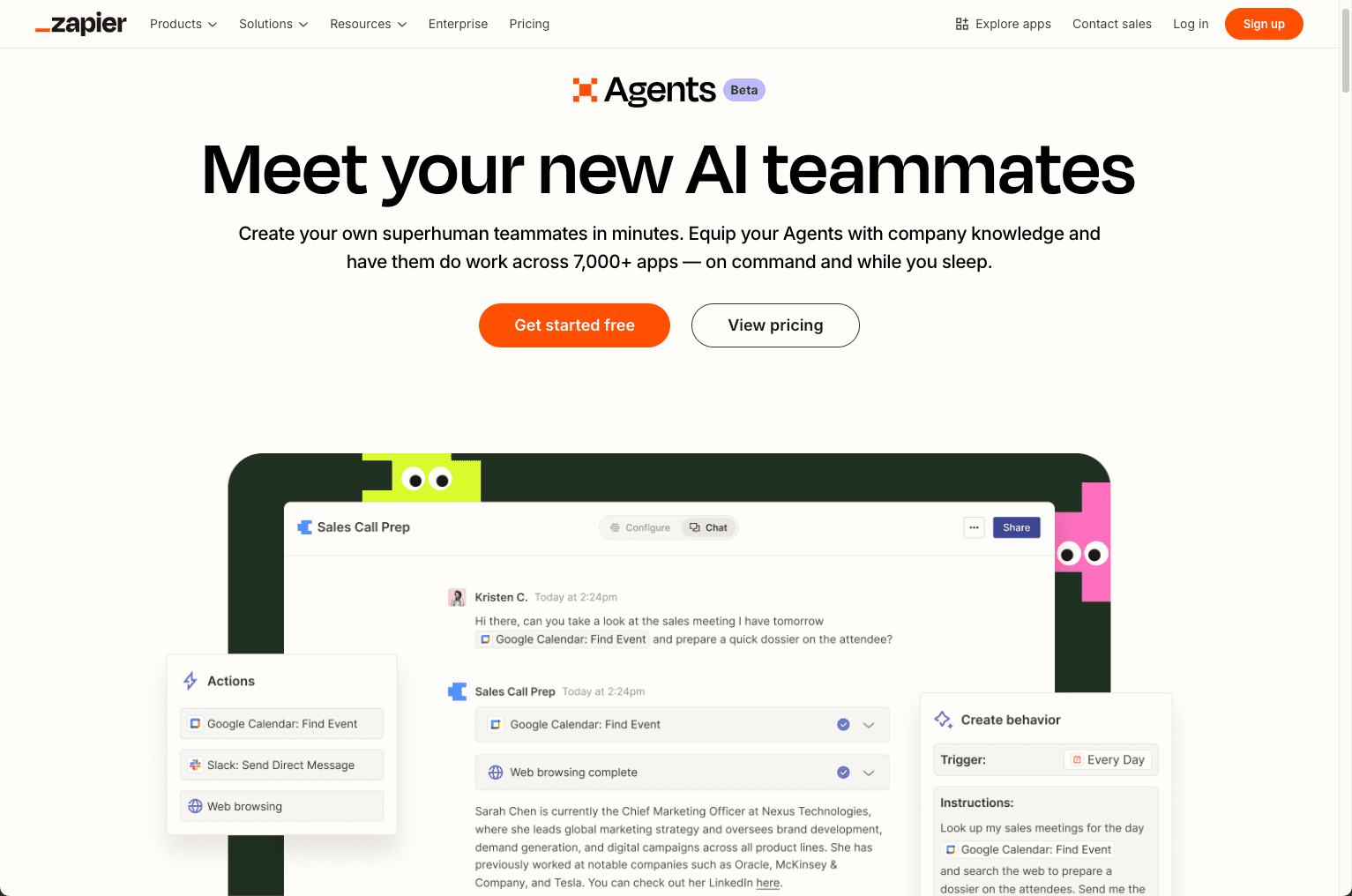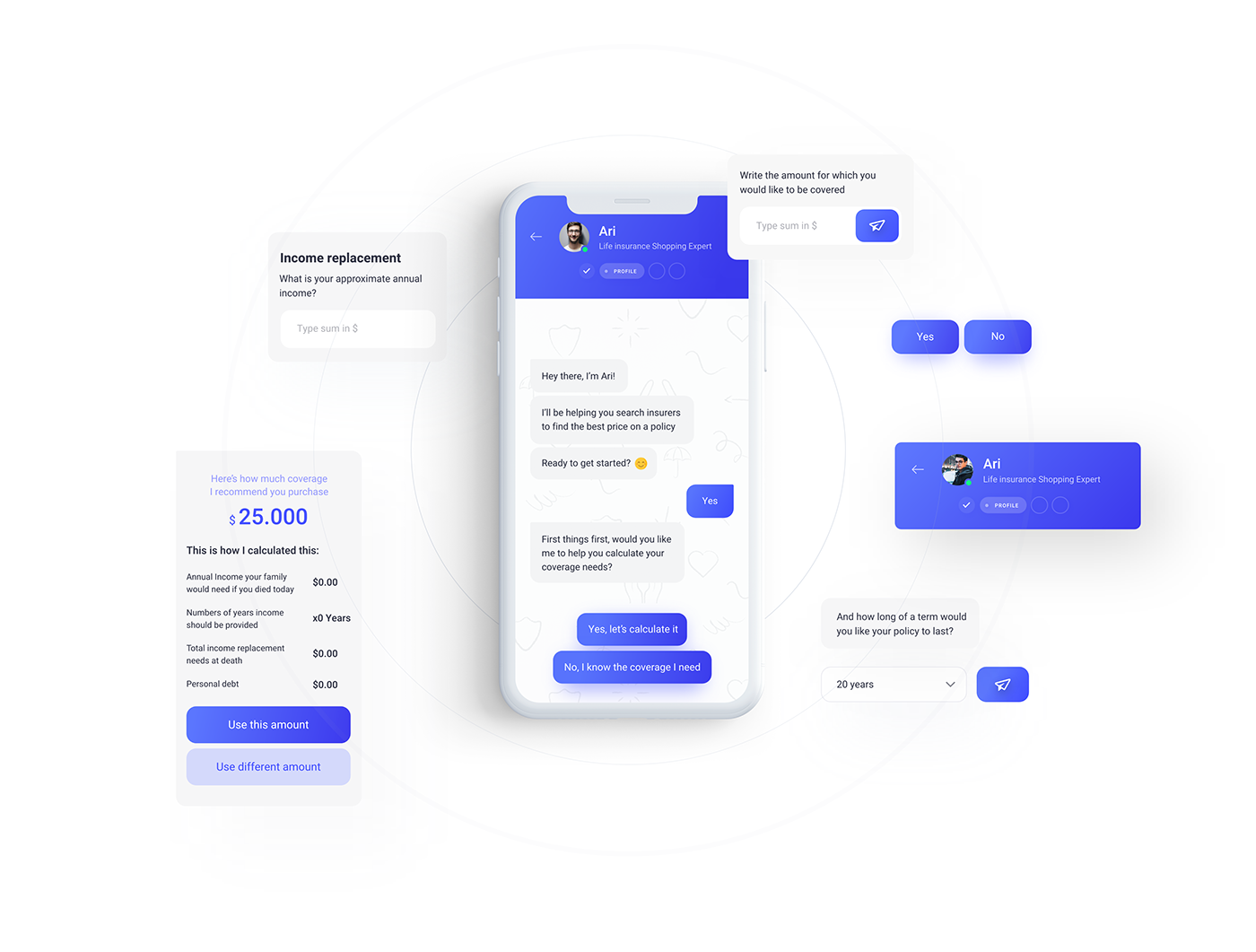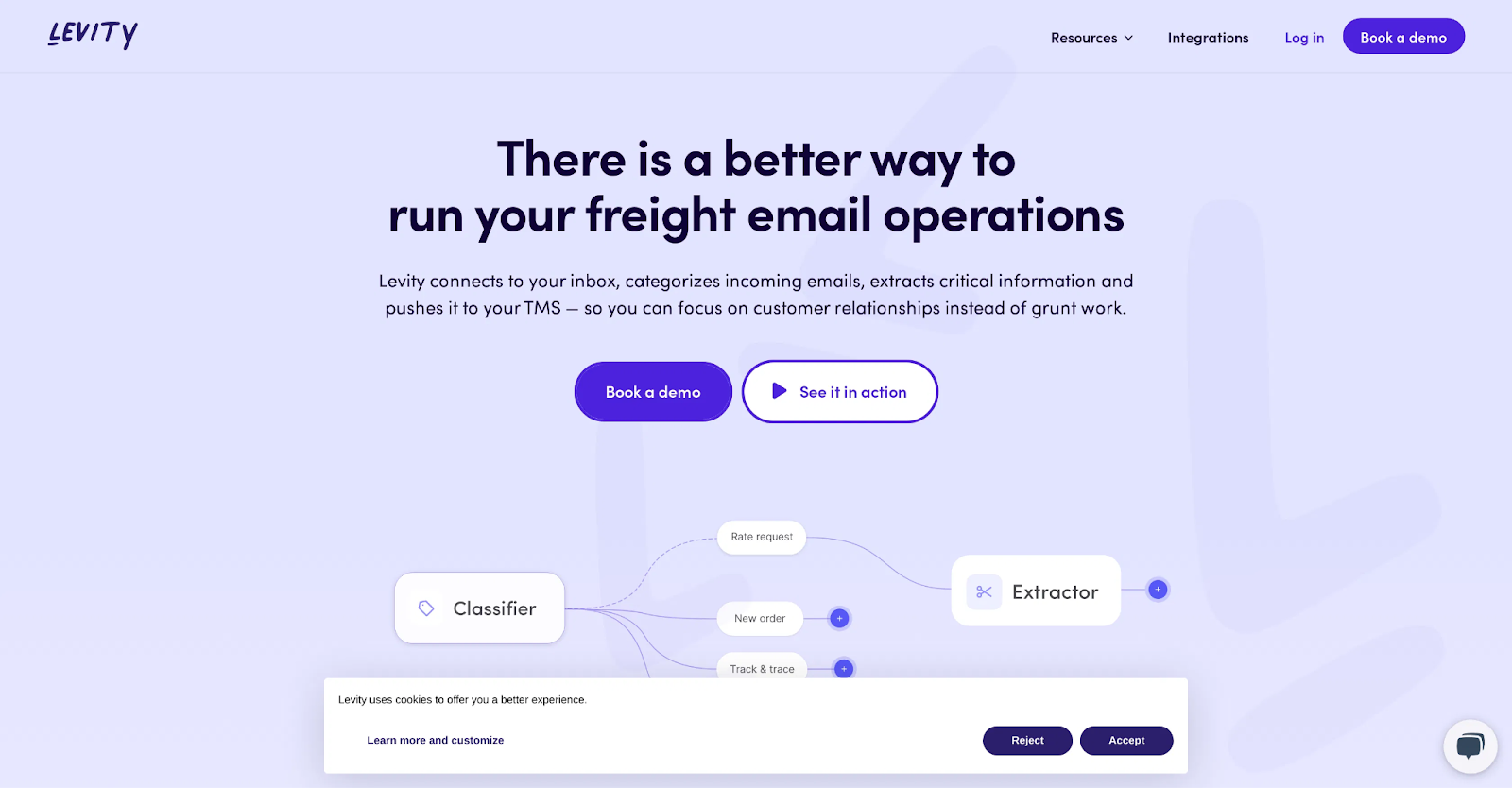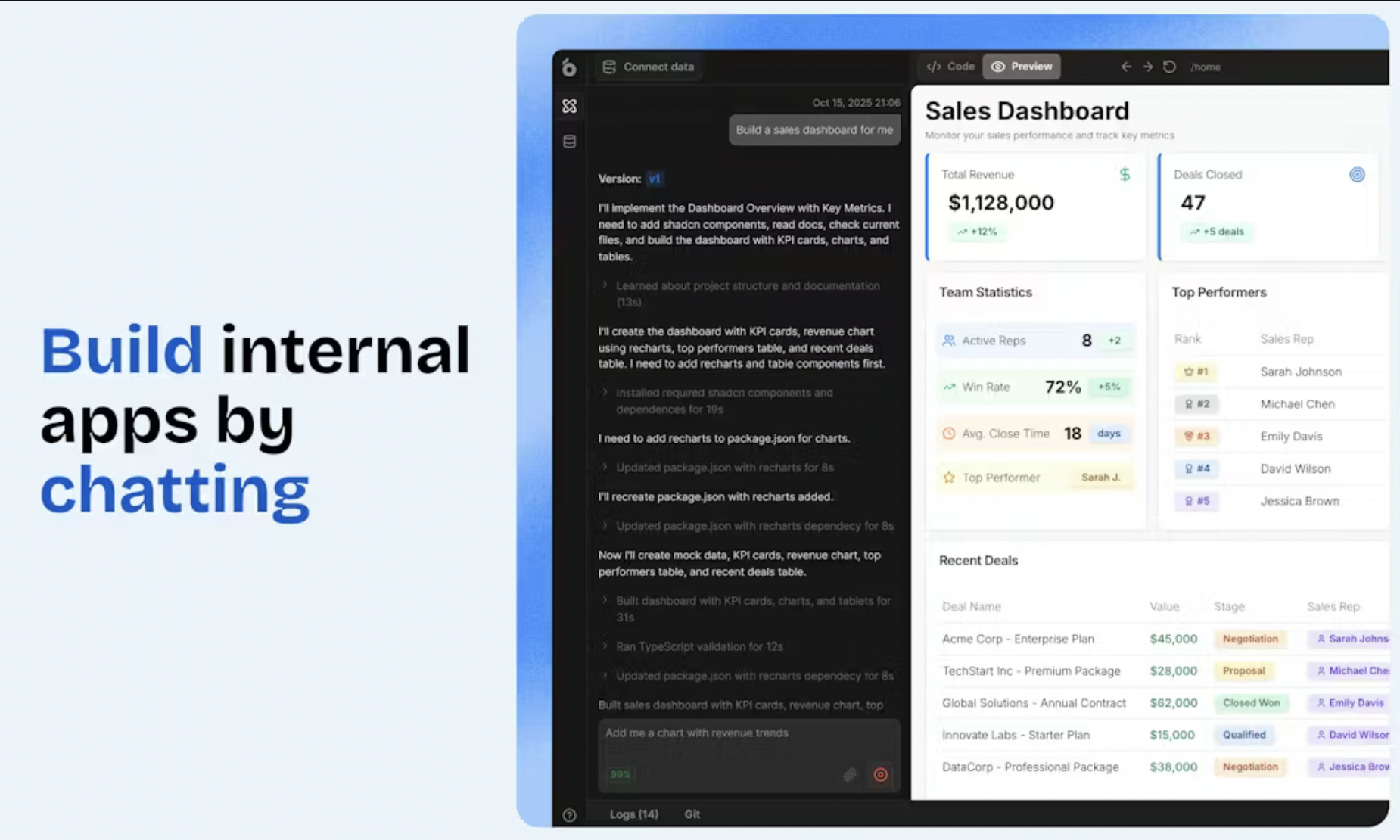
Top AI Tools for Insurance Agents: 5 Most Effective Options
AI is reshaping the insurance world and being a core operational advantage – from real-time lead qualification to automated meeting notes. In this guide, we break down the most widely used and effective tools for today, including a special spotlight on real and common pain points for insurance agents.
Why exactly these tools?
Platforms below were chosen based on use cases, feature list, and proven ability to help agents sell more, work faster, and reduce manual tasks:
- Industry adoption - you’ll see most widely used automation and AI platforms in the insurance industry or in insurance-adjacent workflows, such as documentation, CRM, and customer communication.
- Clear and proven ROI - each tool solves a real gap for teams: lead management, note-taking, quoting, document processing, or automation.
- User-friendly - these AI agents don’t require heavy IT support or long implementation cycles. They can be used by agents, brokers, and small agencies right away.
- Coverage of key AI categories - voice agents, workflow automation, conversational AI, document intelligence, and customizable agent builders.
Zapier AI Agents

Zapier is an AI powered automation platform that can help with multi-step workflows, handle reasoning, drafting, connecting apps, moving data between systems, and cross-system task execution. It frees employees from administrative tasks while orchestrating dozens of tools and systems, reducing manual work, and ensuring teams spend more time selling.
Key features:
- Natural-language automation builder.
- AI-powered lead scoring and triage.
- AI email, summaries, and report drafting.
- Lead routing + CRM updates.
- Webhook and API actions.
Pros:
- Massive ecosystem of integrations.
- User-friendly interface, making it a breeze to set up automations.
- Extremely flexible.
- No technical experience required.
Cons:
- Pricing grows with volume.
- Can hit some limits with more complex workflows.
- Not directly insurance-specific.
Use case: automating lead qualification, syncing data across systems, processing forms, and nurturing clients with personalized AI-generated messages.
Fireflies – AI voice Agents

Fireflies is an AI assistant for teams who rely on voice calls. It is used for transcription, summarization, recording, and automated CRM updates. This is a safe choice of AI voice agents for insurance that helps with call recording, meeting notes, and compliance documentation. Fireflies acts as the custodian of your data but does not use it for AI training purposes.
Key features:
- Intelligent real-time call transcription.
- AI-generated summaries.
- Integrations with more than 60 services, including Slack, Notion, and Google Docs, etc., to streamline workflows.
- CRM syncing and note categorization.
- Compliance-friendly conversation archiving.
Pros:
- Saves hours of note-taking.
- Mobile and desktop support.
- Pro version includes conversation analytics, helping provide insights into meeting performance.
- Support over 100 languages.
- Support AI-powered action items and task tracking.
Cons:
- The features on the free plan may not be sufficient.
- Delayed transcription on longer calls.
- Requires call platform access
Use case: may be used like AI for life insurance agents to automatically document client conversations for compliance and follow-up.
Insurmi – Violet AI

Violet is an AI system used for quoting flows, customer service, operational automation, and lead intake with no human intervention needed. Specifically built for insurance, this tool understands insurance terminology and workflows - frees agencies from providing instant answers to repetitive questions.
Key features:
- Built-in insurance model.
- Intelligent chatbots.
- Policy, payment, and changes explanation.
- Real-time quoting flows.
- Integrations with major CRMs, policy databases, and claims systems help to retrieve and update customer data.
Pros:
- Designed specifically for insurance.
- May reduce operational costs.
- Great for customer self-service.
- Reduces agent workload to focus on more complex work.
Cons:
- More enterprise-focused.
- Not designed for voice calls.
- Effectiveness depends on proper setup, which takes time.
Use case: agencies that want automated quoting, lead qualification, or AI support directly on their website or chat channels.
Levity AI

Levity is a no-code AI platform that automates email and document classification, claims intake, processing, and inbox organization. It uses machine learning models to analyze PDFs, images, and emails, extract structured information, categorize documents, and trigger workflows. Ultimately, it becomes a consistent and reliable employee who takes care of all the paperwork, document-intensive tasks, and inbox overload.
Key features:
- Data extraction from PDFs and emails + automation.
- Claims triage and document.
- Workflow triggers.
- Integration with CRM and customer databases.
Pros:
- Strong document-AI capabilities.
- Improves efficiency by eliminating most manual processes.
- Easy for non-technical teams.
- Integrates with tools like Slack, Zapier, Google Drive, email platforms, and more.
Cons:
- Not built specifically for insurance.
- Training takes time and effort.
- Pricing can be high.
Use case: agents and support teams use Levity to process claims documents, ID cards, PDFs, and incoming customer files automatically.
Bonus tool: UI Bakery AI Agent

UI Bakery is an AI-powered no-code platform allowing agencies to build their own custom internal tools, dashboards, admin panels - all without developer experience. The tool helps teams create unique workflows tailored to their processes: claim intake dashboards, quoting assistants, renewal reminder systems, or custom CRM-like panels.
Key features:
- Integrations with CRMs, databases, Google Sheets, APIs, ERPs, and SaaS products.
- Automated decision-making.
- Custom AI Logic Using LLMs.
- Form processing + data enrichment, and automated validation.
Pros:
- Extremely customizable.
- Perfect for background data processing or ongoing tasks.
- Fast to deploy.
- No coding needed, just using natural language prompts.
- Ideal for unique agency processes.
Cons:
- Requires some planning.
- Not suitable for voice workflows.
- Not a pre-built insurance tool (yet very flexible).
Use case: great AI for insurance agents seeking custom automations as claims intake portals, renewal reminders, or reporting dashboards - built around their exact workflow.
Comparison table: AI agents for insurance
Final thoughts
The tools above represent the best AI agents for insurance who want to modernize operations, scale sales, and reduce administrative workload. Whether you want call summaries, automated quoting, document processing, or fully custom AI workflows, these platforms cover every major need in a modern agency.




